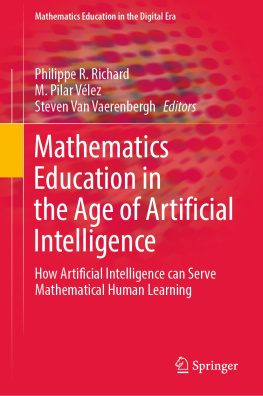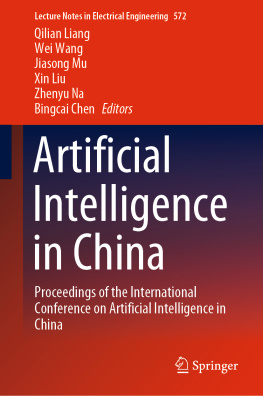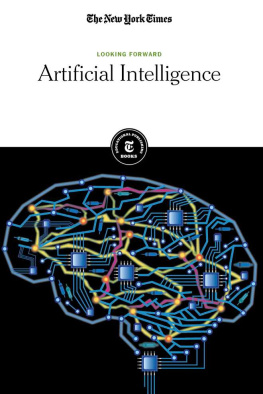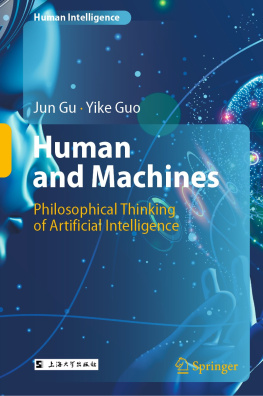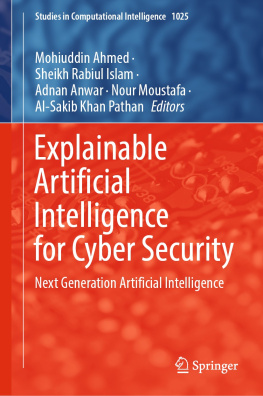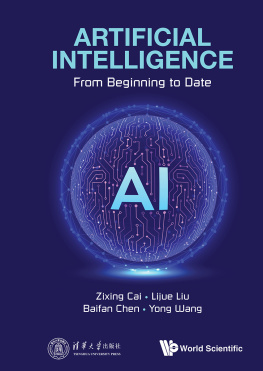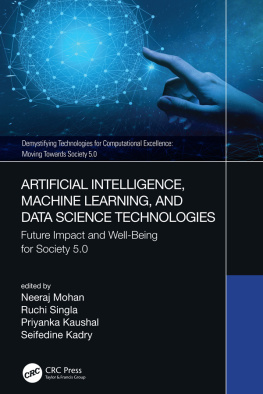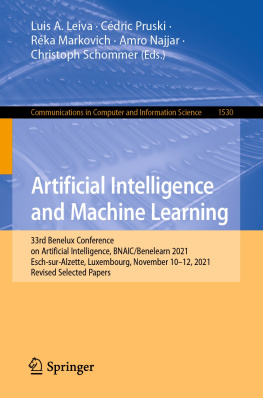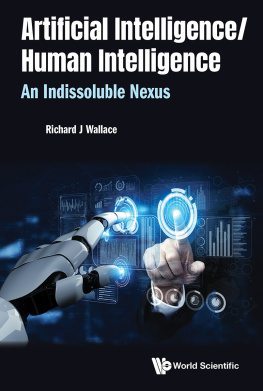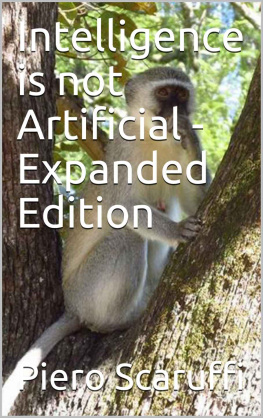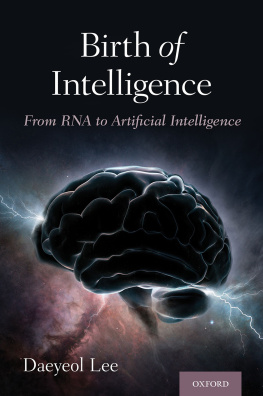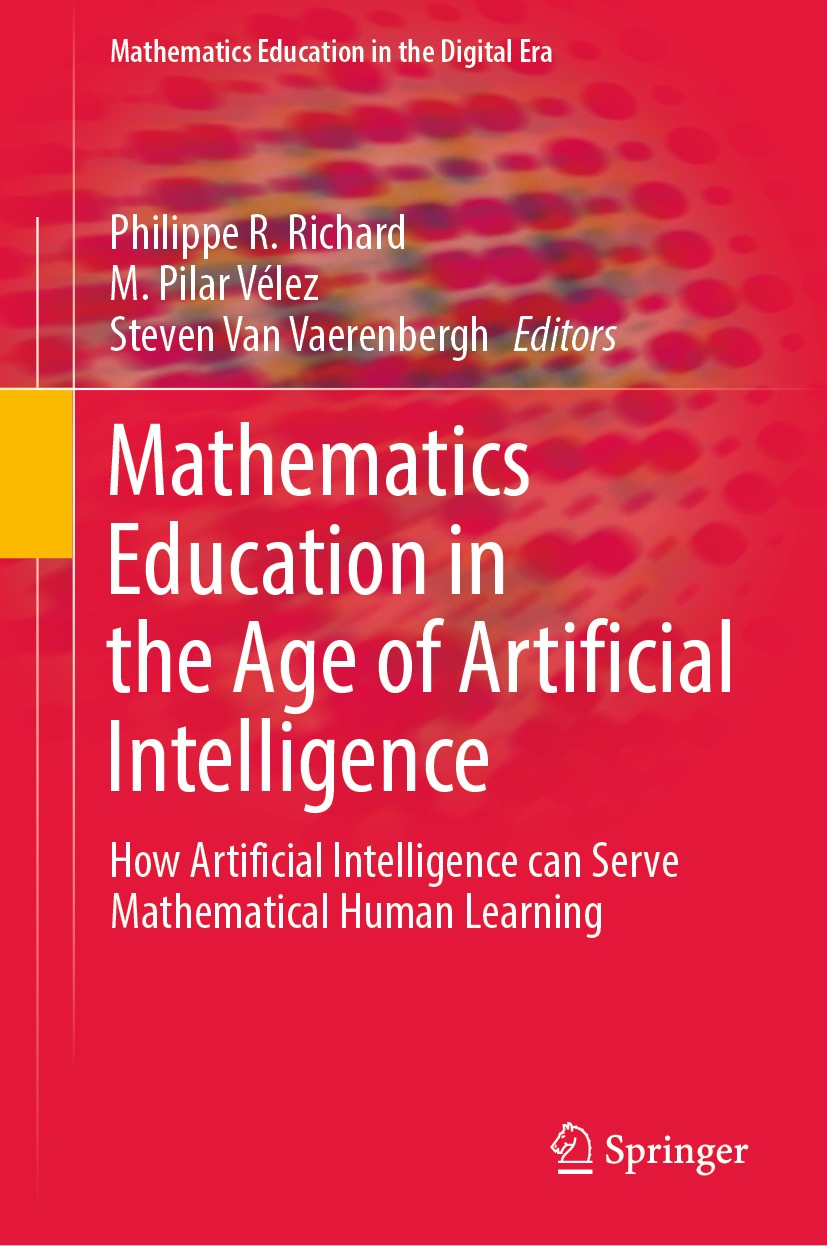Philippe R. Richard - Mathematics Education in the Age of Artificial Intelligence: How Artificial Intelligence can Serve Mathematical Human Learning
Here you can read online Philippe R. Richard - Mathematics Education in the Age of Artificial Intelligence: How Artificial Intelligence can Serve Mathematical Human Learning full text of the book (entire story) in english for free. Download pdf and epub, get meaning, cover and reviews about this ebook. City: Cham, year: 2022, publisher: Springer, genre: Science. Description of the work, (preface) as well as reviews are available. Best literature library LitArk.com created for fans of good reading and offers a wide selection of genres:
Romance novel
Science fiction
Adventure
Detective
Science
History
Home and family
Prose
Art
Politics
Computer
Non-fiction
Religion
Business
Children
Humor
Choose a favorite category and find really read worthwhile books. Enjoy immersion in the world of imagination, feel the emotions of the characters or learn something new for yourself, make an fascinating discovery.
- Book:Mathematics Education in the Age of Artificial Intelligence: How Artificial Intelligence can Serve Mathematical Human Learning
- Author:
- Publisher:Springer
- Genre:
- Year:2022
- City:Cham
- Rating:4 / 5
- Favourites:Add to favourites
- Your mark:
Mathematics Education in the Age of Artificial Intelligence: How Artificial Intelligence can Serve Mathematical Human Learning: summary, description and annotation
We offer to read an annotation, description, summary or preface (depends on what the author of the book "Mathematics Education in the Age of Artificial Intelligence: How Artificial Intelligence can Serve Mathematical Human Learning" wrote himself). If you haven't found the necessary information about the book — write in the comments, we will try to find it.
This book highlights the contribution of artificial intelligence for mathematics education. It provides concrete ideas supported by mathematical work obtained through dynamic international collaboration, and discusses the flourishing of new mathematics in the contemporary world from a sustainable development perspective.
Over the past thirty years, artificial intelligence has gradually infiltrated all facets of society. When it is deployed in interaction with the human designer or user, AI certainly raises new ethical questions. But as soon as it aims to augment intelligence in a kind of human-machine partnership, it goes to the heart of knowledge development and the very performance of work. The proposed themes and the sections of the book address original issues relating to the creation of AI milieus to work on mathematics, to the AI-supported learning of mathematics and to the coordination of usual paper/pencil techniques and new AI-aided educational working spaces. The authors of the book and the coordinators of each section are all established specialists in mathematics didactics, mathematics and computer science. In summary, this book is a must-read for everyone interested in the teaching and learning of mathematics, and it concerns the interaction between the human and the machine in both directions. It contains ideas, questions and inspiration that invite to take up the challenge of Artificial Intelligence contributing to Mathematical Human Learning.
Philippe R. Richard: author's other books
Who wrote Mathematics Education in the Age of Artificial Intelligence: How Artificial Intelligence can Serve Mathematical Human Learning? Find out the surname, the name of the author of the book and a list of all author's works by series.

